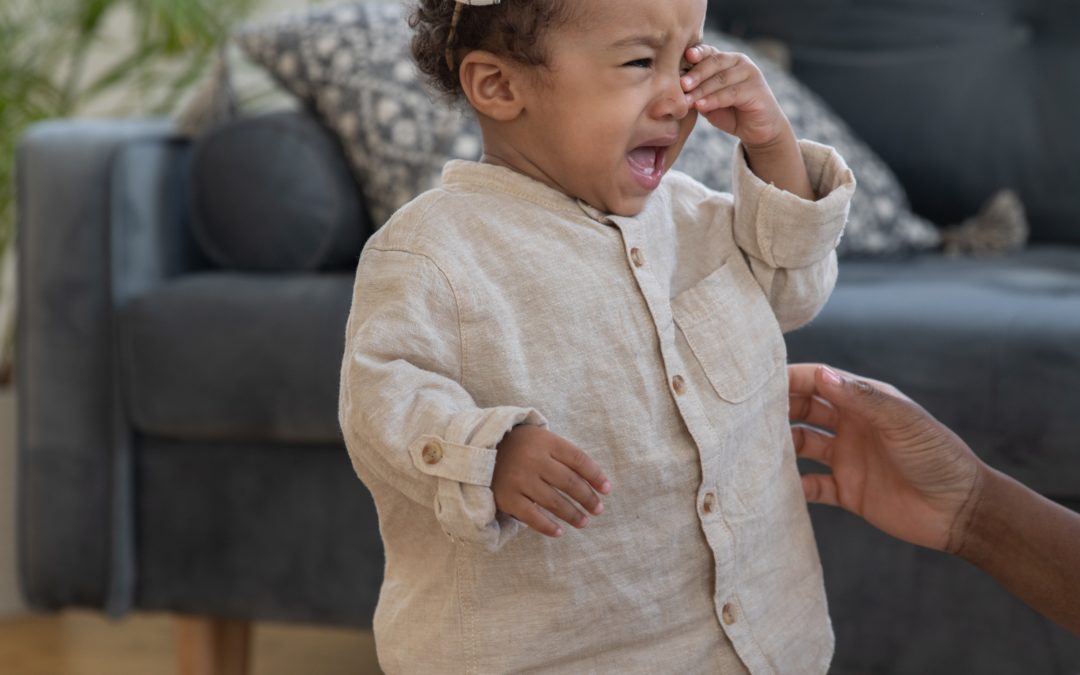“You get what you get, and you don’t get upset”
Is this helpful for our little people?
By Emma Daniels
I’ve heard this phrase so often and it has been playing on my mind.
“You get what you get, and you don’t get upset”
Picture this…
You are at your favourite restaurant, you are so excited for that chicken parmi you’ve been hanging out for, for days. You sit down at the table and the server comes up, greets you and puts a plate of sweet potato fries down in front of you. Confused, you say “Oh I’m sorry, I didn’t order this” to which the server replies; “you get what you get, and you don’t get upset!”, then promptly walks off.
How do you think this interaction would make you feel? Would you quietly sit and eat your sweet potato fries, forgetting about the delicious chicken parmi you have been craving? Or would you say something? If the server insisted they would not give you what you wanted, after you had reasonably explained you didn’t order the fries, would you not become more forceful, frustrated, possibly angry? I know I would, so why then do we expect this emotional mastery of our little ones?
Interactions with Our Children
I understand, it is the start of a super long day, you have meetings that could be emails, a mountain of paperwork waiting on your desk, extracurriculars for the kids after school, you are already running late and little Miss 2 is still not dressed. Why? Because she is insisting on a Spiderman costume instead of the perfectly reasonable pants/shirt/jumper combo you laid out the night before. Now here comes the tantrum, the push back that’s making you even later. Out of frustration you default to “You get what you get and you don’t get upset”. But is this true? And is it helpful?
It is very normal for this to be the adult’s reaction in this situation. After all, why does it even matter? Clothes are just clothes! This is a typical situation we encounter in our days with young children who are learning who they are, their likes and dislikes. However, it is important to stop for a moment and consider the message we are sending with this catchy, sometimes effective, throw away phrase.
“You get what you get”
Well yes, sometimes this is true. There are times in life where you may not feel like you have a choice or may not like the options available to you. But such is life and we learn to deal with it.
“And you don’t get upset”
But why not? Thinking back to our sweet potato fries situation, wouldn’t you get upset if you got something you didn’t want, didn’t order, and maybe didn’t like? Children are still learning to regulate their emotions, they look to us to show them how to react in emotionally charged situations. Now I am not saying to give children whatever they want, whenever they want it. And it’s not practical to ‘give in’ every time they throw a fit. However we do need to be understanding of their stage of development and be aware of the subliminal messages we are sending. We want to be mindful of unintentionally teaching our children to suppress their emotions. Possibly telling them that they are not allowed to feel what they feel. So while it feels like a throw away phrase, what message is it sending? But, what do you say instead?
Let’s look at some alternatives:
- I see you’re upset about your blue dress being in the wash. It is hard when we can’t have things we want, it is ok to be sad. The washing will be done when we get home and we can lay it out for tomorrow. For today, let’s choose something else so we can head out. Acknowledging the emotion, letting them know it is ok to feel what they feel, explaining the situation and let them know what’s next
- You wanted the blue cup and I gave you the green cup. You got angry and threw it on the floor. It is ok to be angry, it is not ok to throw things. When you are ready to talk we can come to a solution together. Acknowledging the emotion, letting them know it is ok to feel angry, clearly letting them know the action of throwing in anger is not ok, reassuring them we will come to a solution together once they have calmed down
- Would you like a fork or a spoon? A bowl or a plate? Your green shoes or your blue shoes? Giving a choice to begin with will often (not always) stop escalation from happening. This allows the child to have ownership over things that affect them, they feel empowered to make decisions.
Everyone has the right to feel what they feel, adults and children alike. I will leave you with this quote, which I love.


Recent Comments